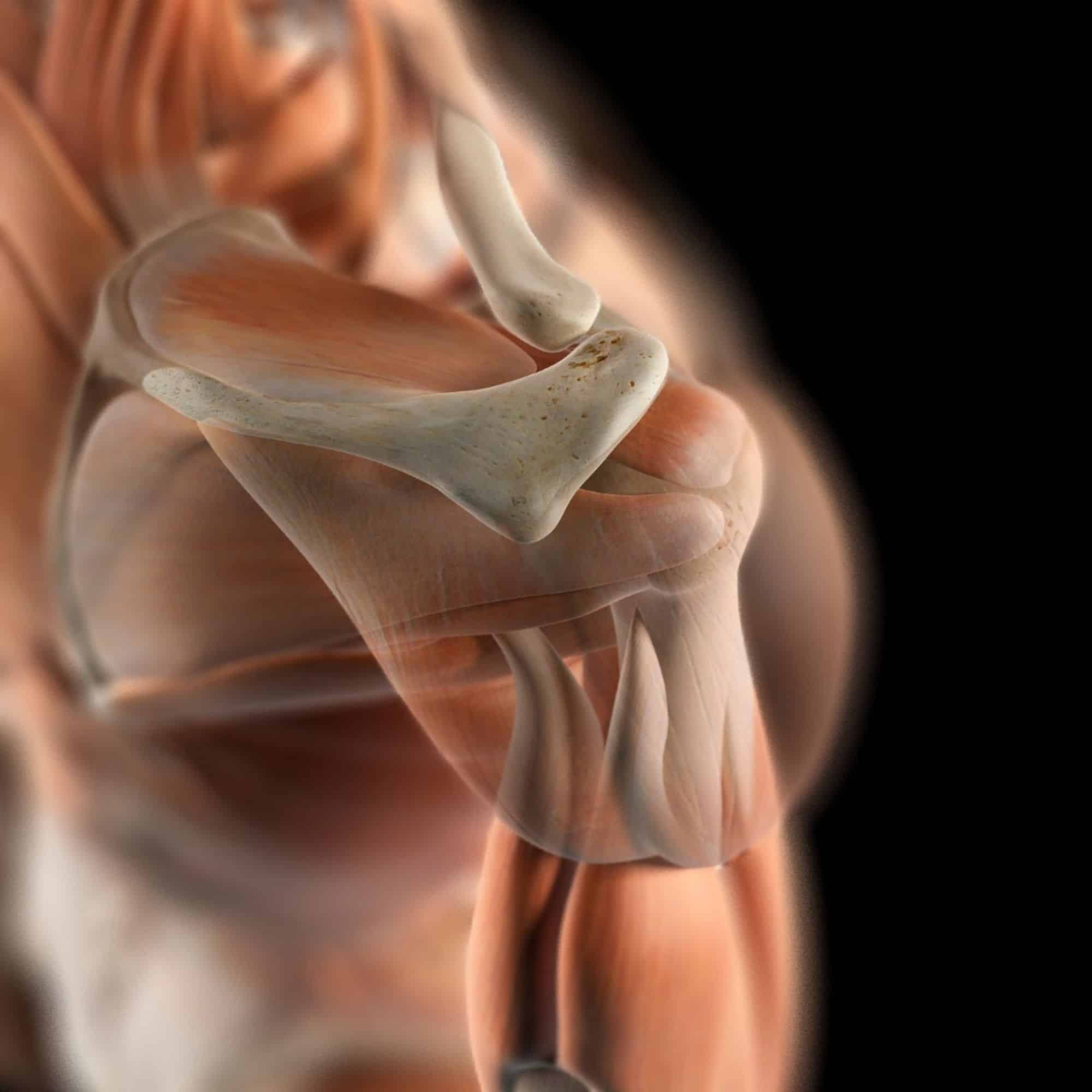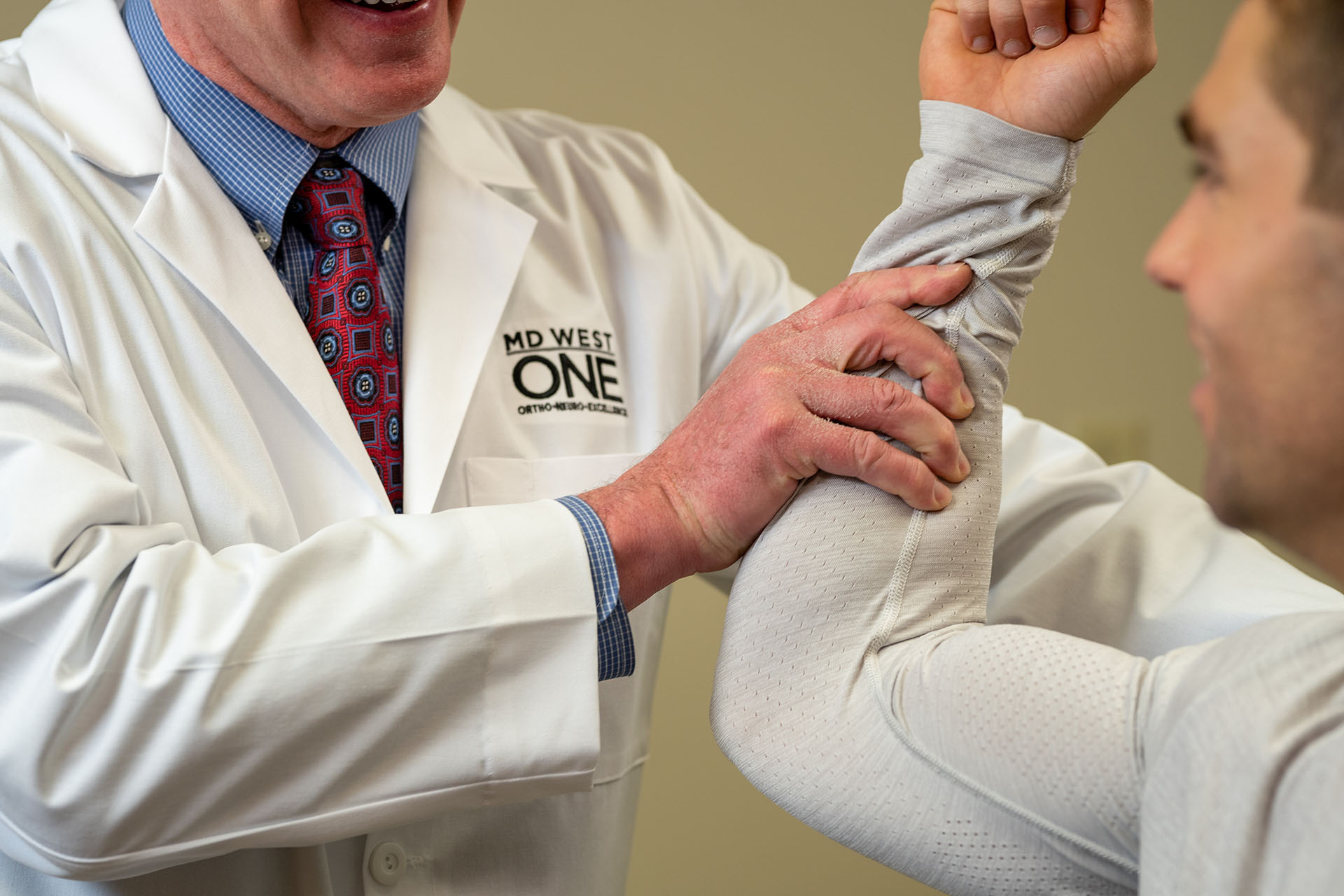Arthroscopic Rotator Cuff Repair
Are you suffering from a rotator cuff tear? At MD West ONE our specialists are trained to perform rotator cuff repairs. Rotator cuff repair surgery is done while you are asleep under general anesthesia. During this time your surgeon will a couple of small cuts (incisions) to insert a small camera called an arthroscope into your shoulder. This camera will help the surgeon see internally through a television screen. This is when the surgeon will work on re-attaching your tendons onto the head of your humerus (upper arm bone).
Why is my surgeon recommending a rotator cuff surgery?
Your surgeon may be recommending surgery because your shoulder pain has not improved with other nonsurgical methods. There are also other factors that may contribute to this decision, such as:
- You have been experiencing symptoms for 6 to 12 months
- You have lost significant function and weakness in that shoulder
- Your tear is larger than 3cm
- The tear is recent and caused by a traumatic injury

After Surgery
After surgery, you will feel pain. This is completely normal and part of the healing process. Your doctor and nurses will work together to reduce your pain, this will help you recover faster.
Prior to you leaving the hospital your doctor will send a prescription to your pharmacy for some short-term pain relief after surgery. Your doctor may suggest multiple medications to help manage your pain, such as opioids, non-steroidal anti-inflammatory drugs (NSAIDs), and local anesthetics. Your doctor will discuss which options or combinations would be best for you.
Opioids
At MD West One, your health is always a top priority, which is why we are very passionate about getting you back to full activity in a safe and timely manner. We understand every patient is unique when it comes to pain management. A key component of a successful pain treatment plan includes weighing all risks and benefits to find the pain treatment plan that best fits you.
A high risk of dependence and overdose is associated with the use of opioids. To avoid this from accruing our agreement with you:
- You should take all medications as ordered by your provider. If you take the medication in excess of what is prescribed and run out of the medication prior to the refill date, the refill will not be authorized early.
- If you are requiring a refill of your prescription please call during regular business hours. Our providers will not refill any pain medications over the weekend, holidays, or after clinic hours.
- Make sure to tell your physician or nurse which medications you are taking, including herbal remedies, since narcotic medications can interact with over-the-counter medications and other prescribed medications, especially cough syrups that contain alcohol, codeine, or hydrocodone.
- Alteration of any written prescription, sharing, trading, or selling your medication is a federal offense and will be reported.
- You are responsible for keeping your pain medication in a safe and secure place, such as a locked cabinet or safe. Stolen medications should be reported to the police and to your physician immediately.
- If your medications are lost, misplaced, or stolen, your physician may choose not to replace the medications or to taper and discontinue the medications.
Rehabilitation
After surgery, you will start your rehabilitation phase in stages:
- Immobilization: for the first 4 to 6 weeks you will be placed in a sling to avoid using your arm and protect the tendons will they heal.
- Passive exercise: after you have completed your 4 to 6 weeks in the sling with no movement your surgeon will decide if it is safe for you to start moving your arm and shoulder. Then you will be directed to physical therapy where you start to work on some passive exercises to improve your range of motion and regain some strength in that shoulder. During this phase, the therapist will teach you how to do the exercises while they support your arm.
- Active exercise: after the passive phase has been completed your therapist will start working on more active exercises with you. In this phase, your will slowly start moving your muscles on your own and start increasing some strength to improve your arm control.
Recover after a rotator cuff repair procedure takes several months to heal completely. By 4 to 6 months after surgery, most patients will return to a functional range of motion and adequate strength. Remember to be patient.

Risk Factors
After rotator cuff surgery, a small percentage of patients experience complications. In addition to the risks of surgery in general, such as blood loss or problems related to anesthesia, complications of rotator cuff surgery may include:
- Nerve injury. This typically involves the nerve that activates your shoulder muscle (deltoid).
- Infection. Patients are given antibiotics during the procedure to lessen the risk for infection. If an infection develops, an additional surgery or prolonged antibiotic treatment may be needed.
- Deltoid detachment. During an open repair, this shoulder muscle is detached to provide better access to the rotator cuff. It is stitched back into place at the end of the procedure. It is very important to protect this area after surgery and during rehabilitation to allow it to heal.
- Stiffness. Early rehabilitation lessens the likelihood of permanent stiffness or loss of motion. Most of the time, stiffness will improve with more aggressive therapy and exercise.
- Tendon re-tear. There is a chance for re-tear following all types of repairs. The larger the tear, the higher the risk of re-tear. Patients who re-tear their tendons usually do not have greater pain or decreased shoulder function. Repeat surgery is needed only if there is severe pain or loss of function.
American Academy of Orthopedic Surgeons
This article has been written and peer-reviewed by the American Academy of Orthopaedic Surgeons.
